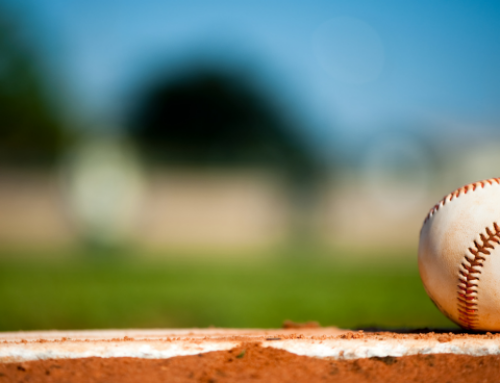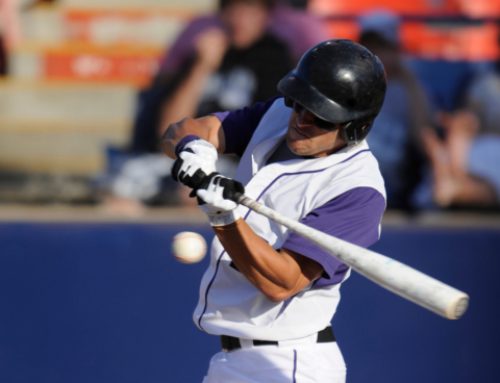Getting on UCLA’s Diamond
UCLA head baseball coach John Savage is savvy when securing recruits to power his upperechelon program, which saw NCAA Tournament action for the third consecutive year in 2008. While commanding the Bruins for the past five years, Savage has achieved national recognition for his recruiting classes. Four were ranked in the top 13 by Baseball America. Here, Savage pitches his thoughts about the baseball recruiting process and the role of JuCo as a prelude to suiting up for a D-I program.
STACK: What sets baseball recruiting apart from other sports?
John Savage: The number one thing is the [MLB] draft. We have to deal with the draft every June, so we have to get the best players [who] really value education [and who] value the experience of playing at a school such as UCLA—having a chance to be an All-American; having a chance to go across country and play at a Miami or an Ole Miss or an ACC or SEC school; and then having the opportunity to play at Omaha for a National Championship.
STACK: Describe what you’re looking for in a recruit.
JS: A player [who] can really withstand everything involved in being a student-athlete at UCLA. Number one: Can [he] handle it academically? We need to find a person [who] can really stay up in the classroom and also stay up with all the happenings [of] being a student-athlete in the weight room, conditioning, traveling and performing at [a] high level.
STACK: Do you think players understand the degree of responsibility required for college baseball?
JS: No, it’s a whole new experience…very unlike high school. From getting up in the morning [to weight train and condition], to going to class… [and] in terms of hitting or throwing a bullpen [session], and then getting into practice. After that, you get into studying, and the next day it’s the same thing. The time [commitment] that we ask from our athletes is a lot.
STACK: Can you talk about junior college and how it affects the D-I recruiting process?
JS: A player [who] may not be quite ready physically and mentally [but] is a good student can go to a junior college to develop his skills and then go to a four-year school. If [he is] a qualifier out of high school and [passes] 24 units, [he] can transfer right away after one year. If [he’s] not a qualifier, then [he has] to get [his associate’s] degree. If you look at a lot of the [D-I] programs throughout the country, [many]…take players from junior college programs, and they get more mature players, and they get…stronger players.
STACK: How typical is it for an athlete to go to a junior college before moving up to a D-I program?
JS: [At] UCLA, it’s a small percentage—probably 10 percent. At a state school, you see maybe more [of an influx] of junior college players. If [a] player is a good student and he’s a person who shows that he can handle the academics [at] UCLA, then certainly we’ll look at that route.
RECOMMENDED FOR YOU
Getting on UCLA’s Diamond
UCLA head baseball coach John Savage is savvy when securing recruits to power his upperechelon program, which saw NCAA Tournament action for the third consecutive year in 2008. While commanding the Bruins for the past five years, Savage has achieved national recognition for his recruiting classes. Four were ranked in the top 13 by Baseball America. Here, Savage pitches his thoughts about the baseball recruiting process and the role of JuCo as a prelude to suiting up for a D-I program.
STACK: What sets baseball recruiting apart from other sports?
John Savage: The number one thing is the [MLB] draft. We have to deal with the draft every June, so we have to get the best players [who] really value education [and who] value the experience of playing at a school such as UCLA—having a chance to be an All-American; having a chance to go across country and play at a Miami or an Ole Miss or an ACC or SEC school; and then having the opportunity to play at Omaha for a National Championship.
STACK: Describe what you’re looking for in a recruit.
JS: A player [who] can really withstand everything involved in being a student-athlete at UCLA. Number one: Can [he] handle it academically? We need to find a person [who] can really stay up in the classroom and also stay up with all the happenings [of] being a student-athlete in the weight room, conditioning, traveling and performing at [a] high level.
STACK: Do you think players understand the degree of responsibility required for college baseball?
JS: No, it’s a whole new experience…very unlike high school. From getting up in the morning [to weight train and condition], to going to class… [and] in terms of hitting or throwing a bullpen [session], and then getting into practice. After that, you get into studying, and the next day it’s the same thing. The time [commitment] that we ask from our athletes is a lot.
STACK: Can you talk about junior college and how it affects the D-I recruiting process?
JS: A player [who] may not be quite ready physically and mentally [but] is a good student can go to a junior college to develop his skills and then go to a four-year school. If [he is] a qualifier out of high school and [passes] 24 units, [he] can transfer right away after one year. If [he’s] not a qualifier, then [he has] to get [his associate’s] degree. If you look at a lot of the [D-I] programs throughout the country, [many]…take players from junior college programs, and they get more mature players, and they get…stronger players.
STACK: How typical is it for an athlete to go to a junior college before moving up to a D-I program?
JS: [At] UCLA, it’s a small percentage—probably 10 percent. At a state school, you see maybe more [of an influx] of junior college players. If [a] player is a good student and he’s a person who shows that he can handle the academics [at] UCLA, then certainly we’ll look at that route.
RECOMMENDED FOR YOU
Create A Free Recruiting Profile Today!
CaptainU helps athletes & parents not only be proactive but also to manage and take control of their entire recruiting journey.











